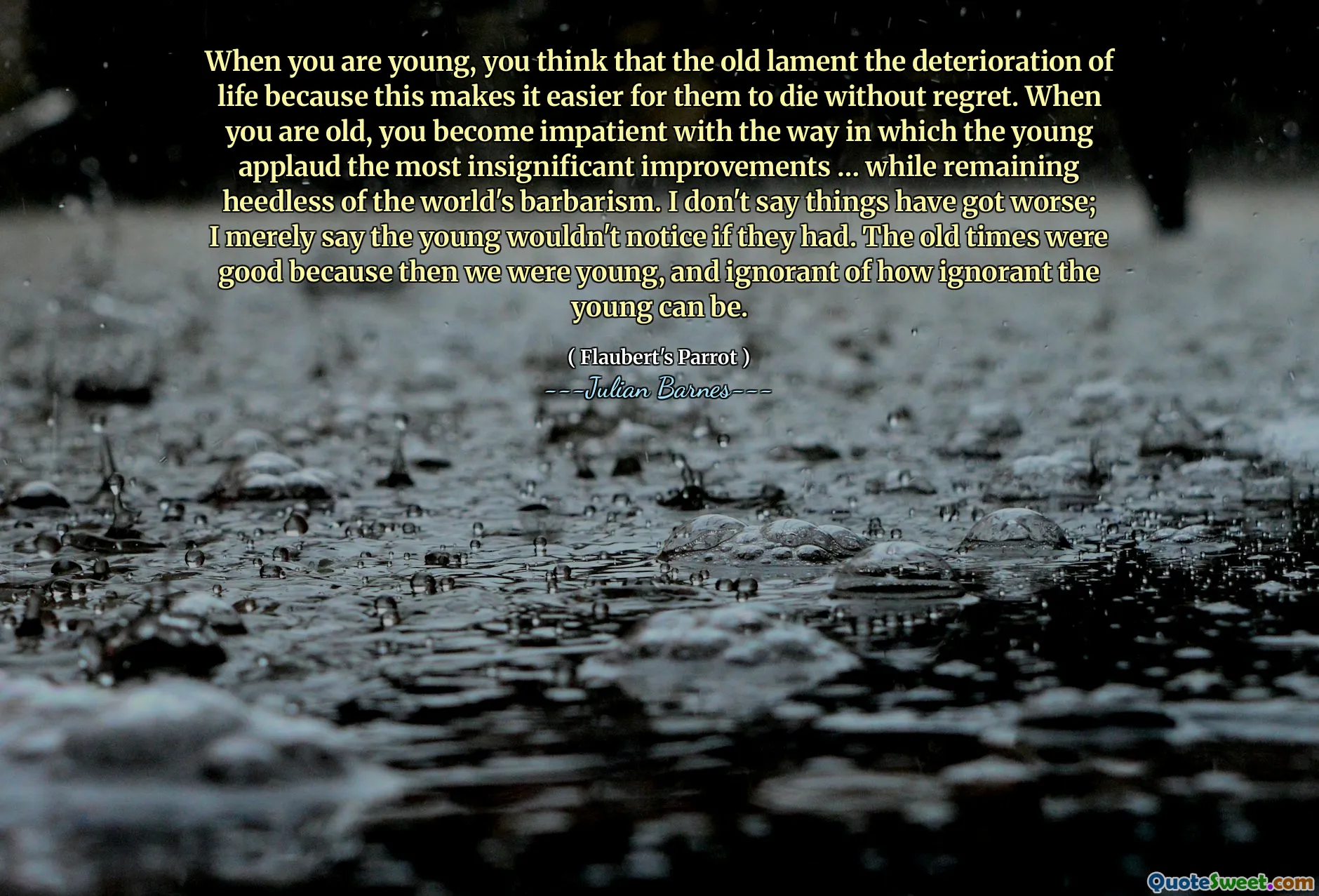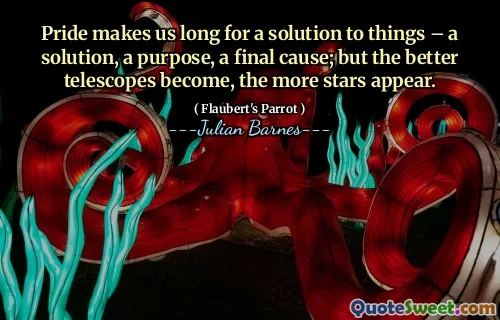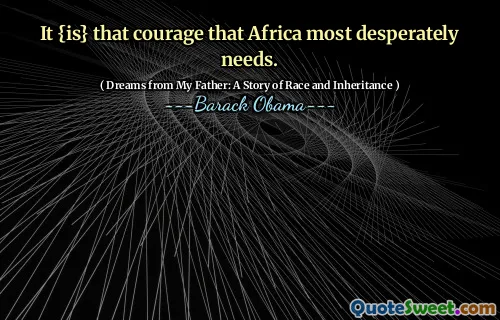
When you are young, you think that the old lament the deterioration of life because this makes it easier for them to die without regret. When you are old, you become impatient with the way in which the young applaud the most insignificant improvements … while remaining heedless of the world's barbarism. I don't say things have got worse; I merely say the young wouldn't notice if they had. The old times were good because then we were young, and ignorant of how ignorant the young can be.
[In this poignant reflection, the passage captures the timeless cycle of aging and the shifting perspectives that come with it. When one is young, there’s often a tendency to view the concerns of the elderly—such as lamenting the decline of life—as being rooted in fear or an attempt to diminish the present. Conversely, as one ages, there's a growing impatience with youth's often superficial appreciation of progress, highlighting a perceived naivety or lack of awareness of deeper societal issues like barbarism. The quote subtly critiques both generations: the youth's focus on trivial advancements, perhaps a superficial optimism, and the old’s focus on life's inevitable decline, possibly masking acceptance or resignation. It suggests that neither perspective fully captures reality, and that each age group has its blind spots. The idea that the old times were considered better simply because they were experienced through the lens of youth and ignorance invites reflection on how perceptions of ‘better times’ are often nostalgia dressed in ignorance. This commentary encourages us to recognize the biases and limitations of our perspectives depending on our age—and to approach judgments of society and progress with a nuanced understanding.
This reflection resonates across cultures and history, emphasizing that aging alters our view of the world, and that both youth and age have their virtues and flaws. It reminds us to remain humble about our judgments and to understand that each phase of life offers different truths, often colored by personal experiences more than objective realities. Ultimately, it challenges us to consider that perhaps the shared human experience involves more acknowledging of these blind spots than claiming superiority of one viewpoint over another.








